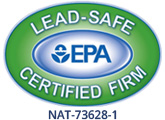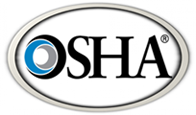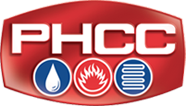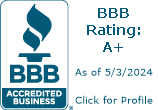Do Commercial HVAC Systems Spread COVID-19?
 A study published in the Journal of Infectious Diseases examined how an air conditioning system in a Wuhan restaurant contributed to the spread of COVID-19 in a public space. An asymptomatic diner was sitting relatively close to the air conditioning system, with other diners seated close by.
A study published in the Journal of Infectious Diseases examined how an air conditioning system in a Wuhan restaurant contributed to the spread of COVID-19 in a public space. An asymptomatic diner was sitting relatively close to the air conditioning system, with other diners seated close by.
From that incident, the study found that four people next to the air conditioner later tested positive, along with five people at neighboring tables. However, 73 other occupants did not show symptoms.
Researchers claim the system’s airflow helped spread the droplets, causing neighboring diners to inhale infected particles. Yet, the restaurant’s high ceilings allegedly prevented others from getting infected. Researchers emphasize the study has not yet been replicated in a lab environment.
Considering these results as your business opens back up, address your HVAC system and take precautionary measures before employees and customers return.
Think About Filtration
According to a report in Facility Executive, updating your building’s HVAC system is not a singular strategy yet one component of overall mitigation. HVAC systems are not a substitute and do not make up for poor social distancing behaviors. Standing six feet apart, hand-washing and wearing masks are key precautionary measures, while the HVAC system is a secondary measure to filter out any particles.
To be effective on recirculated air, ensure all filters are properly installed and maintained. In this instance, low-efficiency filters are the least effective but a high-efficiency filter is not the sole answer. Your business also needs to think about airflow, humidity control and how to incorporate UV light.
Anyone changing the filters also needs to make sure they are properly protected against exposure risks. In turn, make sure you or any HVAC professionals working in your facility have adequate respiratory and hand protection, turn off the system and place the filter in a sealed bag before disposal.
ASHRAE Has Offered Guidance
In response to inquiries about the spread of COVID-19 through HVAC systems, the American Society of Heating, Refrigerating and Air-Conditioning Engineers (ASHRAE) recently released guidance for non-medical facilities, with recommendations based on methods for stopping the SARS outbreak in 2003, which could linger in the air for hours and spread by aerosol transmission.
ASHRAE recommends all non-medical commercial facilities first implement social distancing, surface cleaning, disinfection measures and emphasize appropriate hygiene. After these aspects are considered, they recommend reducing the spread of this virus through the HVAC system by:
- Increasing outdoor air ventilation.
- Disabling demand-controlled ventilation.
- Opening minimum outdoor air dampers to reduce recirculation.
- Using a MERV-1311 or a comparable high-filtration filter for the building’s central air system.
- Keeping the system running around the clock.
- Supplementing the system with portable room air cleaners with HEPA filters.
- Incorporating ultraviolet germicidal irradiation, while also protecting employees and customers from radiation exposure.
Opening Your Facility
Many office buildings have been closed for months and their HVAC systems have been dormant. As you plan to reopen, start the HVAC system before anyone enters and make necessary modifications, based on ASHRAE’s guidance for non-medical facilities.
Business owners and building managers should think about and address the following issues:
- Dead batteries
- Dust accumulation
- Leaks
- Damaged insulation
- Mold and fungi accumulation in drain pans and on coils
- Debris obstructing the outdoor air intake
- Non-functioning valves, dampers, fans and actuators
- Parts that need lubrication
- Sitting water in boilers and chillers
- Water quality
Inspection, repairs and sanitation should be done about two weeks before employees reenter the building, especially if HVAC maintenance was put on hold during quarantine.
If you’re reopening a commercial facility, make sure the HVAC system delivers optimal filtration to supplement social distancing and increased hygiene measures. To have our team inspect and repair your commercial HVAC system, contact us today.




